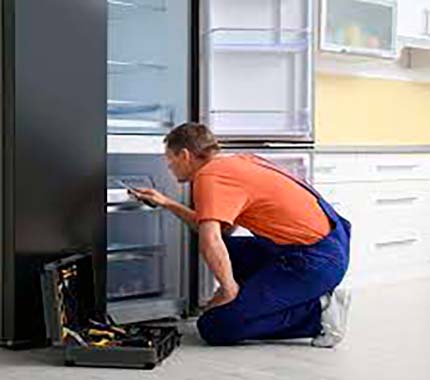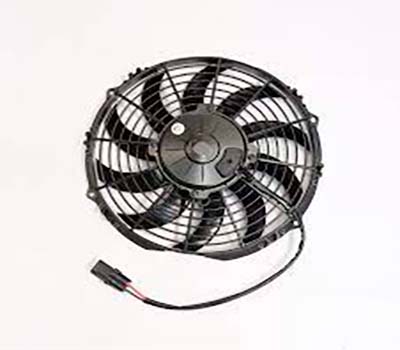Your refrigerator is one of the hardest-working appliances in your home, tirelessly keeping your food fresh and safe to eat. While it’s a vital part of your daily life, you might have noticed that it occasionally makes some noise. But is a noisy fridge something to be concerned about? In this article, we’ll delve into the world of refrigerator noise levels to help you understand what’s normal and when to be worried.
Understanding Refrigerator Noise
Common Sources of Fridge Noise

Refrigerators are complex machines with various components that can generate noise. Understanding where these sounds originate is the first step in determining whether your refrigerator noise level is within the normal range. Here are some common sources of fridge noise:
- Compressor and Condenser Noise: The compressor is responsible for cooling your fridge, and the condenser releases heat. Both can produce humming or buzzing sounds as they work to maintain the desired temperature.
- Evaporator Fan Noise: The evaporator fan circulates the air in the refrigerator and freezer. If it is clogged or worn out, it may produce loud or unusual noises.
- Ice Maker Noise: If your fridge has an ice maker, you’ll likely hear sounds related to ice production. These include the sound of water filling the ice maker, ice cubes dropping into the bin, and the ice maker cycling.
- Water Valve Noise: When the ice maker or water dispenser is activated, you may hear a clicking or buzzing noise as the water valve opens and closes.
- Defrost Timer Noise: During the defrost cycle, the timer may make a ticking sound. This is a normal part of the defrosting process.
When Fridge Noise Indicates a Problem
Unusual or Excessive Noise
Recognizing Abnormal Sounds:
- Banging or Clanking: Loud banging or clanking noises can be indicative of loose or damaged components within the refrigerator. These sounds can signify that something is out of place and needs immediate attention.
- Grinding or Screeching: Grinding or screeching sounds often point to friction or wear within moving parts, such as the compressor or fan motors. Prolonged grinding noises can result in component damage if not addressed promptly.
- Popping or Clicking: Occasional popping or clicking sounds during the fridge’s normal operation can be normal. However, if these sounds become frequent or excessively loud, it may indicate an issue with the defrost timer or other electrical components.
- Continuous Humming or Buzzing: While a gentle hum is typical as the compressor and condenser work to maintain temperature, a continuous and unusually loud humming or buzzing can signal problems with these components.
Fridge Noise and Efficiency
Impact on Appliance Performance:
Excessive noise in your fridge can sometimes be directly linked to reduced energy efficiency and performance issues:
- Increased Energy Consumption: If your fridge is working harder and making more noise than usual, it’s likely consuming more energy. This not only results in higher electricity bills but also indicates that the appliance is struggling to maintain the desired temperature.
- Potential Cooling Problems: Some noise issues can be symptomatic of cooling problems. For instance, if the evaporator fan is making unusual sounds, it may not be circulating air efficiently, leading to inconsistent temperature levels inside the fridge.
- Shortened Appliance Lifespan: prolonged noise problems can result in component wear and tear, potentially reducing the overall lifespan of your refrigerator. It’s crucial to address these issues to ensure the longevity of the appliance.
Cases a Fridge Noise is Safe
One of the first questions that might come to mind when you hear unusual fridge noises is, “Is it safe?” In most cases, the answer is no, but there are exceptions:
- Normal Operation: Some degree of noise is expected during the normal operation of a refrigerator. This can include sounds like humming, occasional clicks, or the gentle hum of the compressor and fans. These noises are part of the fridge’s regular functioning and are not typically harmful.
- Temporary Noise: Occasionally, a fridge may make unusual noises for a short period, especially after power outages, door openings, or changes in temperature settings. In such cases, the noise may subside as the appliance stabilizes.
- Minor Component Issues: Some noise issues may result from minor problems that, while they should be addressed, do not pose immediate safety risks. For example, a loose shelf or minor vibrations due to uneven flooring may lead to noise but may not necessarily be dangerous.
- Inadequate Maintenance: In many cases, unusual fridge noises can be attributed to inadequate maintenance, such as dirty condenser coils or loose components. While these issues should be resolved to ensure optimal performance, they may not be inherently hazardous.
DIY Troubleshooting for Fridge Noise

Compressor and Condenser Issues
Safety Concern
Ensure safety by unplugging the refrigerator from the electrical outlet. This prevents any electrical hazards during your inspection.
Step 1: Locate the Compressor and Condenser
- The compressor is typically located at the back of the refrigerator, often near the bottom. It’s a cylindrical or box-shaped component with pipes or tubing connected to it.
- The condenser coils are also usually at the back of the refrigerator, either underneath or on the back panel. They consist of a network of coils or fins.
Step 2: Listen for Unusual Noises
Once you’ve located the compressor and condenser, listen closely for any unusual sounds. Common compressor and condenser noises may include:
- Normal Humming: A gentle, consistent humming sound is normal as the compressor runs to maintain the fridge’s temperature. This should not be cause for concern.
- Buzzing: A buzzing sound that persists and becomes louder or more noticeable than usual can indicate a potential issue with the compressor or condenser.
- Rattling or Clanking: These noises can suggest loose or damaged components within the compressor or condenser. They may indicate mechanical issues.
- Clicking: Occasional clicking sounds are normal as the fridge cycles on and off. However, frequent or loud clicking can indicate problems with electrical components like the relay or capacitor.
- Sizzling or Hissing: These noises may indicate a refrigerant leak, which can be hazardous. If you suspect a refrigerant leak, do not attempt to repair it yourself; seek professional help.
Step 3: Observe Temperature and Performance
- Monitor the temperature inside the refrigerator and freezer compartments. If the fridge is not adequately cooling despite the compressor running constantly, it could signal a compressor problem.
Step 4: Check for Vibrations
- Place your hand on the sides or rear of the refrigerator while it’s running. Excessive vibrations, especially those accompanied by noise, can indicate issues with the compressor or condenser.
Step 5: Inspect for Heat
- Carefully touch the sides and back of the refrigerator. If these areas feel excessively hot, it may suggest that the condenser is not dissipating heat properly, possibly due to dirty coils or other issues.
Evaporator Fan Problems

Identifying evaporator fan noise in your refrigerator requires careful observation and listening. Here’s a step-by-step guide on how to identify this type of noise:
Step 1: Locate the Evaporator Fan
- The evaporator fan is typically located inside the freezer compartment of your refrigerator. It’s responsible for circulating cold air throughout the fridge and freezer sections.
Step 3: Listen for Unusual Noises
Open the freezer door and keep it open while you listen for any unusual sounds coming from the area near the fan. Common evaporator fan noises may include:
- Normal Humming: A consistent and gentle humming sound is typically normal as the fan runs to maintain temperature. This noise should not be a cause for concern.
- Buzzing: A buzzing sound that persists and becomes louder or more noticeable than usual can indicate an issue with the evaporator fan motor or blades.
- Squealing or Squeaking: High-pitched squealing or squeaking noises can suggest that the fan motor or bearings are experiencing friction or wear.
- Clicking: Occasional clicking sounds during the fan’s operation may be normal. However, frequent or loud clicking noises can indicate problems with the fan motor or its housing.
Step 4: Observe Temperature and Performance
- Monitor the temperature inside the refrigerator and freezer compartments. If you notice inconsistent cooling or a rise in temperature despite the fan running, it may indicate an evaporator fan issue.
Step 5: Check for Vibrations
- Place your hand on the walls or shelves of the freezer compartment while the fan is running. If you feel excessive vibrations or rattling, it can suggest a problem with the fan or its mounting.
Step 6: Inspect for Obstructions
- Visually inspect the area around the evaporator fan for any obstructions, such as ice buildup or foreign objects. Even small obstructions can cause noise and affect the fan’s efficiency.
Regular maintenance and prompt attention to evaporator fan issues can help ensure your refrigerator operates efficiently and quietly, preserving the quality of your food and minimizing disruptions in your home.
Ice Maker and Water Valve Troubles
Step 1: Locate the Ice Maker and Water Valve
- The ice maker and water valve are typically located in the freezer compartment or the rear of the refrigerator. The ice maker is responsible for ice production, while the water valve controls the flow of water to the ice maker and water dispenser.
Step 3: Listen for Unusual Noises
Open the freezer compartment and listen for any unusual sounds coming from the vicinity of the ice maker and water valve. Common noises related to these components may include:
- Normal Operation: A certain level of noise is typical during the ice-making process, such as the sound of ice cubes dropping into the bin or water filling the ice mold.
- Buzzing or Humming: A continuous buzzing or humming noise can indicate that the water valve is actively filling the ice maker with water. This is generally normal.
- Clicking: Occasional clicking sounds can be part of the ice-making cycle, especially when the ice maker’s motor or components move. These sounds are usually not a cause for concern.
- Loud or Continuous Grinding: If you hear a loud grinding noise or continuous rattling, it may indicate issues with the ice maker’s motor, auger, or gears. These noises should be investigated further.
Step 4: Observe Ice Production and Dispensing
- Monitor the ice maker’s performance. If it consistently fails to produce ice or dispense water, it could indicate issues with the water valve, ice maker assembly, or related components.
Step 5: Inspect for Obstructions
- Visually inspect the area around the ice maker and water valve for any ice blockages, foreign objects, or obstructions that might be causing noise or interfering with their operation.
Step 6: Check for Leaks
- Look for any signs of water leaks, puddles, or dampness around the ice maker or water valve. Leaks can indicate problems with water supply lines, valves, or connections.
Preventive Maintenance
Regular Maintenance Routines
To keep your fridge operating quietly and efficiently, implement regular maintenance routines:
Keep your fridge quiet: clean the inside and outside regularly. Check for loose or damaged components and tighten any loose screws or bolts.
- Check for Leveling: Ensure that your refrigerator is level. If it’s not, it can cause vibrations that contribute to noise. Use a leveling tool to adjust the fridge’s feet until it sits evenly on the floor.
- Maintain Proper Ventilation: Adequate ventilation around your refrigerator is essential for heat dissipation and efficient operation. Avoid placing the fridge too close to walls or cabinets, as this can obstruct airflow and lead to increased noise.
- Avoid Overcrowding: An overcrowded fridge can disrupt airflow and make your appliance work harder, potentially increasing noise levels. Keep your fridge well-organized, and don’t overfill it.
- Regular Cleaning: Dirt, dust, and debris can accumulate on the condenser coils, compressor, and other components, leading to increased noise. Regularly clean these parts as per your fridge’s user manual recommendations.
- Inspect Seals and Gaskets: Damaged or worn door seals and gaskets can allow warm air to enter the fridge, causing it to work harder and create more noise. Check these seals regularly and replace them if necessary.
- Choose a Quiet Location: When installing or relocating your fridge, choose a quiet location away from high-traffic areas, such as living rooms or bedrooms. This can help minimize the impact of fridge noise on your daily life.
- Use Soundproofing Materials: If your fridge is particularly noisy, consider using soundproofing materials to dampen the sound. You can apply these materials to the sides or back of the appliance to reduce vibrations and noise transmission.
- Regularly Defrost the Freezer: Ice buildup in the freezer can cause the evaporator fan to work harder and produce more noise. Follow your fridge’s defrosting schedule to prevent excessive frost buildup.